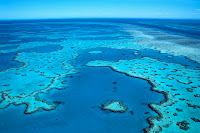
Heat waves and periods of unusually warm weather
Frequent and severe heat waves lead to increases in heat-related illness and death, especially in urban areas and among the elderly, the young, the ill, and the poor.

Ocean warming, sea-level rise and coastal flooding
Warmer temperatures increase melting of mountain glaciers, increase ocean heat content, and cause ocean water to expand. Largely as a result of these effects, global sea level has risen 4 to 10 inches (10-25 cm) over the past 100 years.

Glaciers melting
As glaciers continue to shrink, summer water flows will drop sharply, disrupting an important source of water for irrigation and power in many areas that rely on mountain watersheds.

Arctic and Antarctic warming
Parts of Canada, Alaska, Siberia, and the Antarctic have been experiencing warming well above the global average for the past few decades

Spreading disease
Warmer temperatures allow mosquitoes that transmit diseases such as malaria and dengue fever to extend their ranges and increase both their biting rate and their ability to infect humans.

Earlier spring arrival
Evidence of this comes from earlier thaw dates for rivers and lakes; earlier dates for plant blooming and leafing; and earlier animal egg-laying, spawning and migration. An earlier spring may disrupt animal migrations, alter competitive balances among species, and cause other unforeseen problems.

Plant and animal range shifts and population changes
Plants and animals generally react to consistently warmer temperatures by moving to higher latitudes and elevations. Migration occurs and so does extinction.

Coral reef bleaching
Factors that contribute to coral reef bleaching include nutrient and sediment runoff, pollution, coastal development, dynamiting of reefs, and natural storm damage.
Downpours, heavy snowfalls, and flooding
As climate change increases the risk of flooding, human changes in land use and land cover can also contribute to the growing risk of flooding.

Droughts and fires
Sustained drought makes wildfires more likely, and crops and trees more vulnerable to pest infestations and disease.











